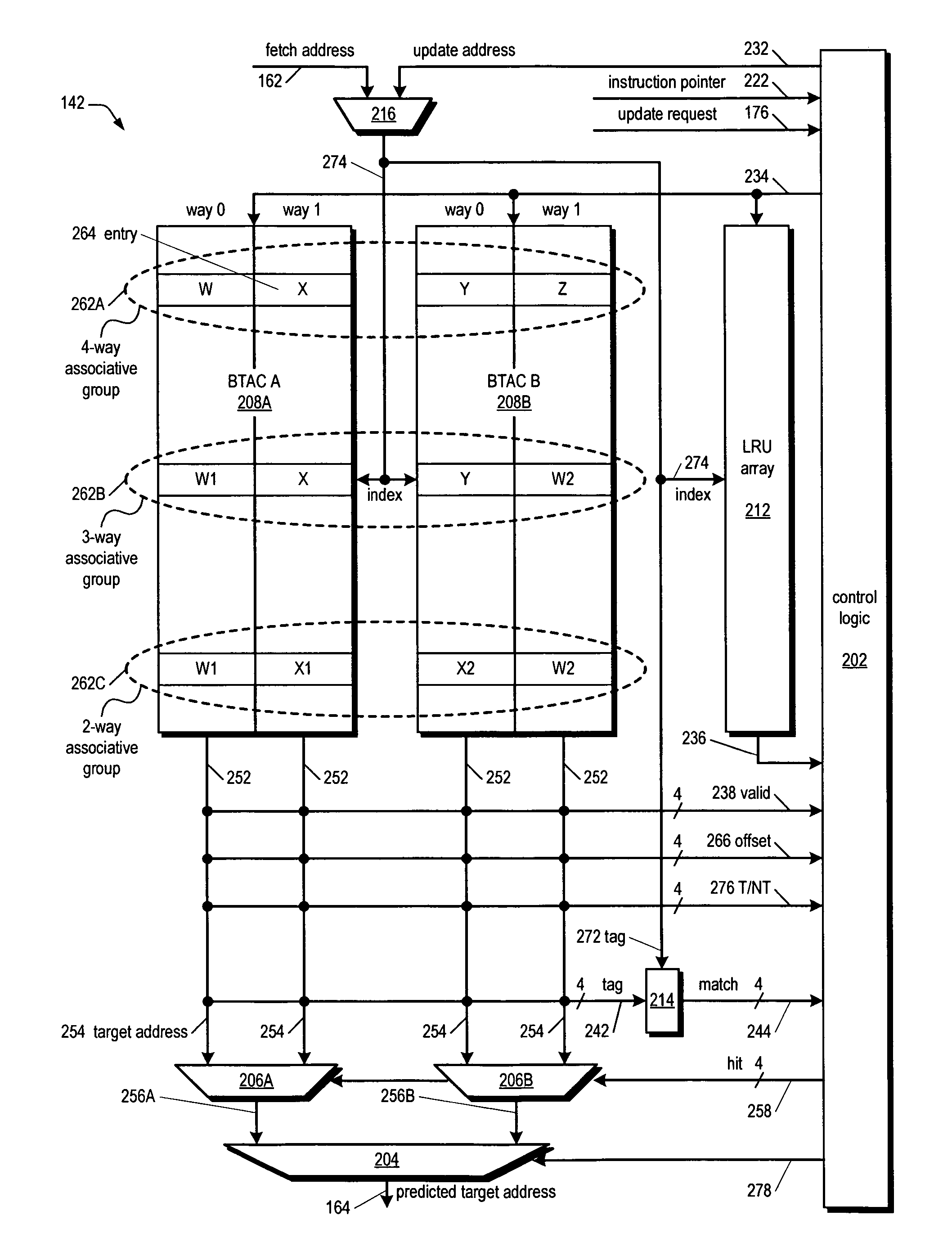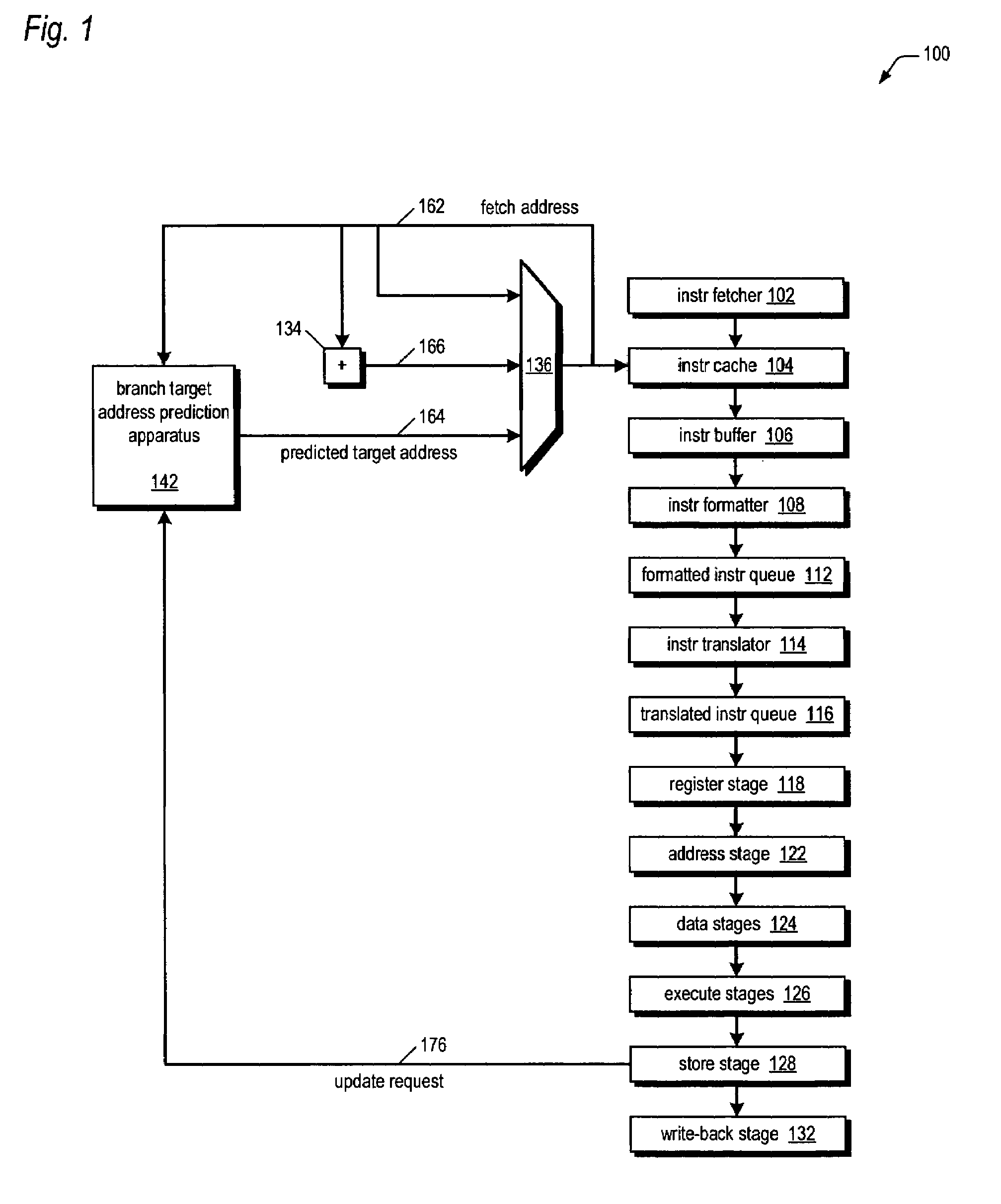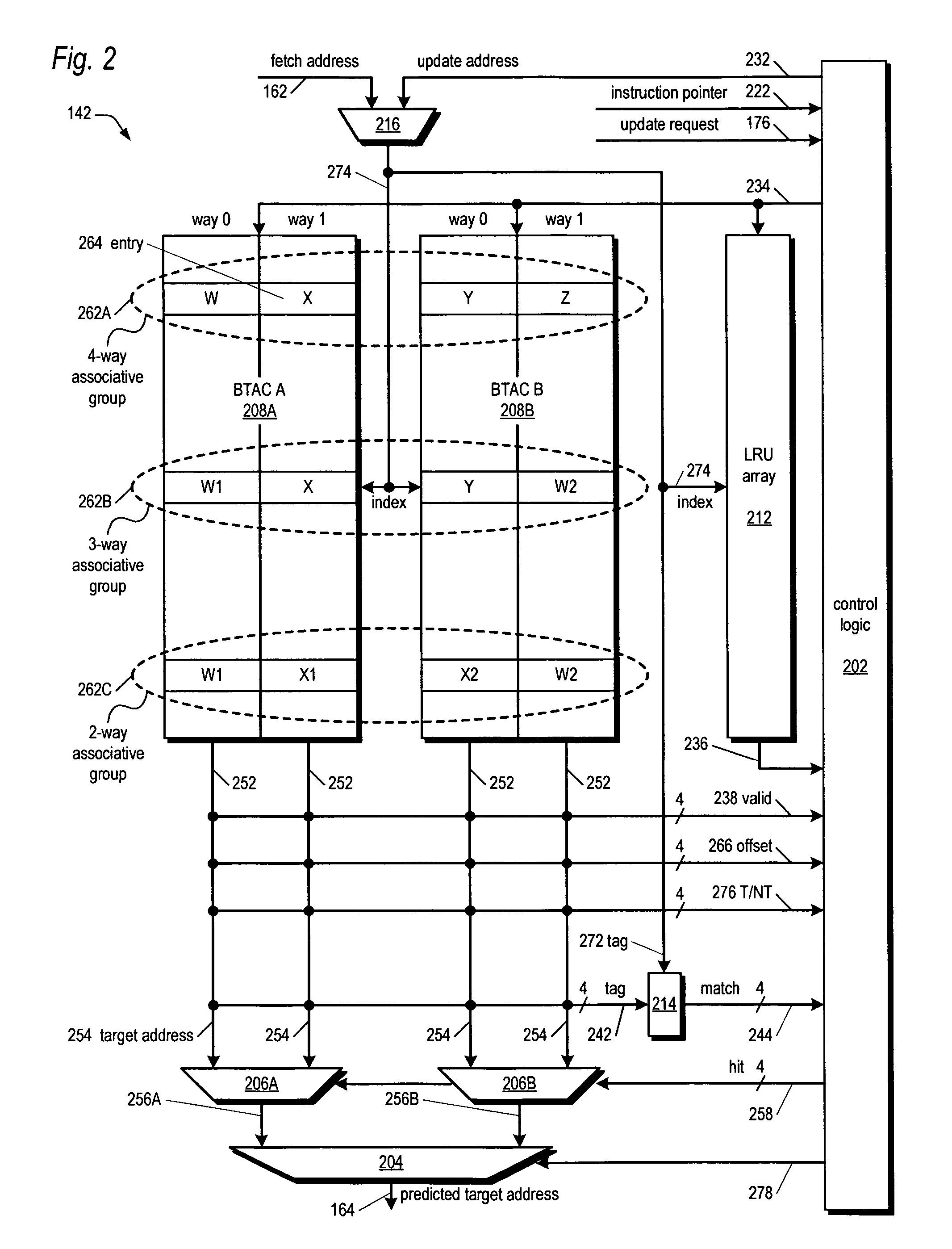Variable group associativity branch target address cache delivering multiple target addresses per cache line
a target address cache and variable group technology, applied in the field of branch target address caches, can solve the problems of 80% of the cache line wasted extra space in the btac statically dedicated for the second target address, and achieve the effect of increasing the associativity of instruction caches, reducing the waste of storage space, and increasing the associativity of each cach
- Summary
- Abstract
- Description
- Claims
- Application Information
AI Technical Summary
Benefits of technology
Problems solved by technology
Method used
Image
Examples
Embodiment Construction
[0019]Referring now to FIG. 1, a block diagram of a microprocessor 100 according to the present invention is shown. The microprocessor 100 comprises a pipelined microprocessor. In one embodiment, the microprocessor 100 comprises a microprocessor whose instruction set conforms substantially to the ×86 architecture instruction set.
[0020]The microprocessor 100 includes an instruction fetcher 102. The instruction fetcher 102 also controls a fetch address mux 136 that outputs a current instruction cache fetch address 162. The current fetch address 162 specifies the address of the next cache line of instruction bytes of the currently executing program to be fetched for execution by the microprocessor 100. If the fetch address 162 hits in the instruction cache 104, then the instruction cache 104 outputs the cache line of instructions specified by the fetch address 162. Otherwise, the instruction fetcher 102 fetches the missing instructions from a memory, such as a system memory, coupled to...
PUM
 Login to View More
Login to View More Abstract
Description
Claims
Application Information
 Login to View More
Login to View More - R&D
- Intellectual Property
- Life Sciences
- Materials
- Tech Scout
- Unparalleled Data Quality
- Higher Quality Content
- 60% Fewer Hallucinations
Browse by: Latest US Patents, China's latest patents, Technical Efficacy Thesaurus, Application Domain, Technology Topic, Popular Technical Reports.
© 2025 PatSnap. All rights reserved.Legal|Privacy policy|Modern Slavery Act Transparency Statement|Sitemap|About US| Contact US: help@patsnap.com



